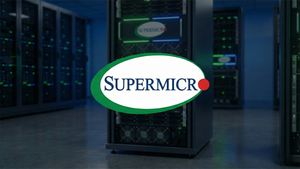bluebird bio, Inc. (Nasdaq: BLUE) announced today that data from its gene therapy programs for transfusion-dependent β-thalassemia (TDT) and sickle cell disease (SCD) and its cell therapy program for relapsed or refractory multiple myeloma (R/RMM) will be presented during EHA2021 Virtual, the 26th Annual Congress of the European Hematology Association, taking place June 9-17, 2021.
bluebird bio will present data from its ongoing clinical studies of betibeglogene autotemcel (beti-cel), including updated results from the Phase 3 Northstar-2 (HGB-207) and the Phase 3 Northstar-3 (HGB-212) studies, as well as long-term efficacy and safety results from the LTF-303 follow-up study. Additionally, data from the company’s Phase 1/2 HGB-206 study of LentiGlobin for SCD (bb1111) will be shared.
Data from the pivotal Phase 2 KarMMa study of ABECMA® (idecabtagene vicleucel; ide-cel) in R/RMM will also be presented in encore presentations, in partnership with Bristol Myers Squibb, including long-term results and a sub-analysis of characteristics of treatment-associated neurotoxicity.
Transfusion-Dependent β-Thalassemia Data at EHA2021
Oral Presentation [S266]: Betibeglogene autotemcel in Patients With Transfusion-Dependent β-Thalassemia: Updated Results From HGB-207 (Northstar-2) and HGB-212 (Northstar-3)
Presenting Author: Professor Franco Locatelli, Director, Department of Pediatric Hematology and Oncology, Ospedale Pediatrico Bambino Gesù, Rome, Italy
Session Title: Changing the Scene on Thalassemias
Date & Time: Available on Demand, Friday, June 11; Live Q&A Session
Oral Presentation [S257]: Betibeglogene autotemcel Gene Therapy for the Treatment of Transfusion-Dependent β-Thalassemia: Updated Long-Term Efficacy and Safety Results
Presenting Author: Dr. Evangelia Yannaki, Director, Gene and Cell Therapy Center, Hematology Department, George Papanicolaou Hospital, Thessaloniki, Greece
Session Title: Cellular Immunotherapy and Gene Therapy – Clinical
Date & Time: Available on Demand, Friday, June 11; Live Q&A Session
ePoster [EP1301]: Interim Results of Betibeglogene autotemcel Gene Therapy in Pediatric Patients with Transfusion-Dependent β-thalassemia (TDT) Treated in the Phase 3 Northstar-2 (HGB-207) and Northstar-3 (HGB-212) Studies
Presenting Author: Dr. Andreas E. Kulozik, Chairman, Department of Pediatric Oncology, Hematology and Immunology, and Director, Hopp Children's Cancer Center, University of Heidelberg, Heidelberg, Germany
ePoster [EP1309]: A Retrospective Database Study of Disease Course and Clinical Outcomes in Patients with Transfusion-dependent Thalassemia (TDT) in Italy
Presenting Author: Dr. Angela Vitrano, Campus of Hematology Franco and Piera Cutino, AOOR Villa Sofia-V. Cervello, Palermo, Italy
Sickle Cell Disease Data at EHA2021
Oral Presentation [S261]: Complete Resolution of Severe Vaso-Occlusive Events and Improved Pathophysiology with LentiGlobin Gene Therapy in Sickle Cell Disease (SCD): Ongoing Phase 1/2 HGB-206 Group C Study
Presenting Author: Dr. Janet L. Kwiatkowski, Director, Thalassemia Center at Children's Hospital of Philadelphia, Philadelphia, PA
Session Title: Changing the Scene on Sickle Cell Disease
Date & Time: Available on Demand, Friday, June 11; Live Q&A Session
ePoster [EP1212]: Complications of Sickle Cell Disease in East London Newborn Cohort Patients Over the Years 2015-2018
Presenting Author: Muriel Soriano, Centre of Genomics and Child Health, Queen Mary University of London, London, United Kingdom
Multiple Myeloma Data at EHA2021
ePoster [EP984]: Characteristics of Neurotoxicity Associated with Idecabtagene Vicleucel (ide-cel, bb2121) in Patients with Relapsed and Refractory Multiple Myeloma in the Pivotal Phase II KarMMa Study
Presenting Author: Dr. Salomon Manier, Department of Hematology, Lille University Hospital, Lille, France
ePoster [EP1009]: Idecabtagene Vicleucel (ide-cel, bb2121), a BCMA-Directed CAR T Cell Therapy, in Patients with Relapsed and Refractory Multiple Myeloma: Updated KarMMa Results
Presenting Author: Dr. Albert Oriol, Institut Josep Carreras and Institut Catala d’Oncologia, Hospital Germans Trias i Pujol, Badalona, Spain
Abstracts are available on the EHA2021 conference website.
About betibeglogene autotemcel (beti-cel)
Betibeglogene autotemcel (beti-cel) is a one-time gene therapy that adds functional copies of a modified form of the β-globin gene (βA-T87Q-globin gene) into a patient’s own hematopoietic (blood) stem cells (HSCs). Once a patient has the βA-T87Q-globin gene, they have the potential to produce HbAT87Q, which is gene therapy-derived adult hemoglobin (Hb), at levels that may eliminate or significantly reduce the need for transfusions. In studies of beti-cel, transfusion independence (TI) is defined as no longer needing red blood cell transfusions for at least 12 months while maintaining a weighted average Hb of at least 9 g/dL.
The European Commission granted conditional marketing authorization (CMA) for beti-cel, marketed as ZYNTEGLO™ gene therapy, for patients 12 years and older with TDT who do not have a β0/β0 genotype, for whom hematopoietic stem cell (HSC) transplantation is appropriate, but a human leukocyte antigen (HLA)-matched related HSC donor is not available. Non-serious adverse events (AEs) observed during clinical studies that were attributed to beti-cel included abdominal pain, thrombocytopenia, leukopenia, neutropenia, hot flush, dyspnea, pain in extremity, tachycardia and non-cardiac chest pain. One serious adverse event (SAE) of thrombocytopenia was considered possibly related to beti-cel.
Additional AEs observed in clinical studies were consistent with the known side effects of HSC collection and bone marrow ablation with busulfan, including SAEs of veno-occlusive disease. For details, please see the Summary of Product Characteristics (SmPC).
On April 28, 2020, the European Medicines Agency (EMA) renewed the CMA for beti-cel. The CMA for beti-cel is valid in the 27 member states of the EU as well as the UK, Iceland, Liechtenstein and Norway. In November 2020, bluebird bio submitted to the EMA an application for the second renewal of the CMA. This procedure is currently on hold while the EMA's Pharmacovigilance Risk Assessment Committee (PRAC) reviews the safety of ZYNTEGLO. The CMA is valid while the renewal application review is ongoing and while it is on hold by the regulatory agency. The U.S. Food and Drug Administration (FDA) granted beti-cel Orphan Drug status and Breakthrough Therapy designation for the treatment of TDT. Beti-cel is not approved in the U.S.
Beti-cel continues to be evaluated in the ongoing Phase 3 Northstar-2 (HGB-207) and Northstar-3 (HGB-212) studies, which are on clinical hold. bluebird bio is conducting a long-term safety and efficacy follow-up study, LTF-303, for people who have participated in bluebird bio-sponsored clinical studies of beti-cel.
About LentiGlobin for SCD (bb1111)
LentiGlobin gene therapy for sickle cell disease (bb1111) is an investigational treatment being studied as a potential treatment for SCD. bluebird bio’s clinical development program for LentiGlobin for SCD includes the completed Phase 1/2 HGB-205 study. It also includes the Phase 1/2 HGB-206 and the Phase 3 HGB-210 studies, which are on clinical hold.
The U.S. FDA granted orphan drug designation, fast track designation, regenerative medicine advanced therapy (RMAT) designation and rare pediatric disease designation for LentiGlobin for SCD.
LentiGlobin for SCD received orphan medicinal product designation from the European Commission for the treatment of SCD, and Priority Medicines (PRIME) eligibility by the EMA in September 2020.
bluebird bio is conducting a long-term safety and efficacy follow-up study (LTF-307) for people who have participated in bluebird bio-sponsored clinical studies of LentiGlobin for SCD. For more information visit: https://www.bluebirdbio.com/our-science/clinical-trials or clinicaltrials.gov and use identifier NCT04628585 for LTF-307.
LentiGlobin for SCD is investigational and has not been approved in any geography.
About ABECMA®
ABECMA is the first-in-class B-cell maturation antigen (BCMA)-directed chimeric antigen receptor (CAR) T cell immunotherapy approved in the U.S. for the treatment of adult patients with relapsed and refractory multiple myeloma after four or more prior lines of therapy, including and immunomodulatory agent, a proteasome inhibitor, and an anti-CD38 monoclonal antibody. ABECMA recognizes and binds to BCMA on the surface of multiple myeloma cells leading to CAR T cell proliferation, cytokine secretion, and subsequent cytolytic killing of BCMA-expressing cells. ABECMA is being jointly developed and commercialized in the U.S. as part of a Co-Development, Co-Promotion, and Profit Share Agreement with Bristol Myers Squibb and bluebird bio.
Bristol Myers Squibb and bluebird bio’s broad clinical development program for ABECMA includes clinical studies (KarMMa-2, KarMMa-3, KarMMa-4, KarMMa-7) in earlier lines of treatment for patients with multiple myeloma, including newly diagnosed multiple myeloma. For more information visit clinicaltrials.gov.
Indication
ABECMA (idecabtagene vicleucel) is a B-cell maturation antigen (BCMA)-directed genetically modified autologous T cell immunotherapy indicated for the treatment of adult patients with relapsed or refractory multiple myeloma after four or more prior lines of therapy, including an immunomodulatory agent, a proteasome inhibitor, and an anti-CD38 monoclonal antibody.
Important Safety Information
BOXED WARNING: CYTOKINE RELEASE SYNDROME, NEUROLOGIC TOXICITIES, HLH/MAS, AND PROLONGED CYTOPENIA
- Cytokine Release Syndrome (CRS), including fatal or life-threatening reactions, occurred in patients following treatment with ABECMA. Do not administer ABECMA to patients with active infection or inflammatory disorders. Treat severe or life-threatening CRS with tocilizumab or tocilizumab and corticosteroids.
- Neurologic Toxicities, which may be severe or life-threatening, occurred following treatment with ABECMA, including concurrently with CRS, after CRS resolution, or in the absence of CRS. Monitor for neurologic events after treatment with ABECMA. Provide supportive care and/or corticosteroids as needed.
- Hemophagocytic Lymphohistiocytosis/Macrophage Activation Syndrome (HLH/MAS) including fatal and life-threatening reactions, occurred in patients following treatment with ABECMA. HLH/MAS can occur with CRS or neurologic toxicities.
- Prolonged Cytopenia with bleeding and infection, including fatal outcomes following stem cell transplantation for hematopoietic recovery, occurred following treatment with ABECMA.
- ABECMA is available only through a restricted program under a Risk Evaluation and Mitigation Strategy (REMS) called the ABECMA REMS.
Cytokine Release Syndrome (CRS): CRS, including fatal or life-threatening reactions, occurred following treatment with ABECMA. CRS occurred in 85% (108/127) of patients receiving ABECMA. Grade 3 or higher CRS (Lee grading system) occurred in 9% (12/127) of patients, with Grade 5 CRS reported in one (0.8%) patient. The median time to onset of CRS, any grade, was 1 day (range: 1 - 23 days) and the median duration of CRS was 7 days (range: 1 - 63 days) in all patients including the patient who died. The most common manifestations of CRS included pyrexia (98%), hypotension (41%), tachycardia (35%), chills (31%), hypoxia (20%), fatigue (12%), and headache (10%). Grade 3 or higher events that may be associated with CRS include hypotension, hypoxia, hyperbilirubinemia, hypofibrinogenemia, acute respiratory distress syndrome (ARDS), atrial fibrillation, hepatocellular injury, metabolic acidosis, pulmonary edema, multiple organ dysfunction syndrome and HLH/MAS.
Identify CRS based on clinical presentation. Evaluate for and treat other causes of fever, hypoxia, and hypotension. CRS has been reported to be associated with findings of HLH/MAS, and the physiology of the syndromes may overlap. HLH/MAS is a potentially life-threatening condition. In patients with progressive symptoms of CRS or refractory CRS despite treatment, evaluate for evidence of HLH/MAS.
Fifty four percent (68/127) of patients received tocilizumab; 35% (45/127) received a single dose while 18% (23/127) received more than 1 dose of tocilizumab. Overall, across the dose levels, 15% (19/127) of patients received at least 1 dose of corticosteroids for treatment of CRS. All patients that received corticosteroids for CRS received tocilizumab.
Overall rate of CRS was 79% and rate of Grade 2 CRS was 23% in patients treated in the 300 x 106 CAR+ T cell dose cohort. For patients treated in the 450 x 106 CAR+ T cell dose cohort, the overall rate of CRS was 96% and rate of Grade 2 CRS was 40%. Rate of Grade 3 or higher CRS was similar across the dose range. The median duration of CRS for the 450 x 106 CAR+ T cell dose cohort was 7 days (range: 1-63 days) and for the 300 x 106 CAR+ T cell dose cohort was 6 days (range: 2-28 days). In the 450 x 106 CAR+ T cell dose cohort, 68% (36/53) of patients received tocilizumab and 23% (12/53) received at least 1 dose of corticosteroids for treatment of CRS. In the 300 x 106 CAR+ T cell dose cohort, 44% (31/70) of patients received tocilizumab and 10% (7/70) received corticosteroids. All patients that received corticosteroids for CRS also received tocilizumab. Ensure that a minimum of 2 doses of tocilizumab are available prior to infusion of ABECMA.
Monitor patients at least daily for 7 days following ABECMA infusion at the REMS-certified healthcare facility for signs and symptoms of CRS. Monitor patients for signs or symptoms of CRS for at least 4 weeks after infusion. At the first sign of CRS, institute treatment with supportive care, tocilizumab and/or corticosteroids as indicated.
Counsel patients to seek immediate medical attention should signs or symptoms of CRS occur at any time.
Neurologic Toxicities: Neurologic toxicities, which may be severe or life-threatening, occurred following treatment with ABECMA, including concurrently with CRS, after CRS resolution, or in the absence of CRS. CAR T cell-associated neurotoxicity occurred in 28% (36/127) of patients receiving ABECMA, including Grade 3 in 4% (5/127) of patients. One patient had ongoing Grade 2 neurotoxicity at the time of death. Two patients had ongoing Grade 1 tremor at the time of data cutoff. The median time to onset of neurotoxicity was 2 days (range: 1 - 42 days). CAR T cell-associated neurotoxicity resolved in 92% (33/36) of patients with a median duration of neurotoxicity was 5 days (range: 1 - 61 days). The median duration of neurotoxicity was 6 days (range: 1 - 578) in all patients including those with ongoing neurotoxicity at the time of death or data cut off. Thirty-four patients with neurotoxicity had CRS. Neurotoxicity had onset in 3 patients before, 29 patients during, and 2 patients after CRS. The rate of Grade 3 neurotoxicity was 8% in the 450 x 106 CAR+ T cell dose cohort and 1.4% in the 300 x 106 CAR+ T cell dose cohort. The most frequently reported (greater than or equal to 5%) manifestations of CAR T cell-associated neurotoxicity include encephalopathy (20%), tremor (9%), aphasia (7%), and delirium (6%). Grade 4 neurotoxicity and cerebral edema in 1 patient has been reported with ABECMA in another study in multiple myeloma. Grade 3 myelitis and Grade 3 parkinsonism have been reported after treatment with ABECMA in another study in multiple myeloma.
Monitor patients at least daily for 7 days following ABECMA infusion at the REMS-certified healthcare facility for signs and symptoms of neurologic toxicities. Rule out other causes of neurologic symptoms. Monitor patients for signs or symptoms of neurologic toxicities for at least 4 weeks after infusion and treat promptly. Neurologic toxicity should be managed with supportive care and/or corticosteroids as needed.
Counsel patients to seek immediate medical attention should signs or symptoms of neurologic toxicity occur at any time.
Hemophagocytic Lymphohistiocytosis (HLH)/Macrophage Activation Syndrome (MAS): HLH/MAS occurred in 4% (5/127) of patients receiving ABECMA. One patient treated in the 300 x 106 CAR+ T cell dose cohort developed fatal multi-organ HLH/MAS with CRS. In another patient with fatal bronchopulmonary aspergillosis, HLH/MAS was contributory to the fatal outcome. Three cases of Grade 2 HLH/MAS resolved. The rate of HLH/MAS was 8% in the 450 x 106 CAR+ T cell dose cohort and 1% in the 300 x 106 CAR+ T cell dose cohort. All events of HLH/MAS had onset within 10 days of receiving ABECMA with a median onset of 7 days (range: 4-9 days) and occurred in the setting of ongoing or worsening CRS. Two patients with HLH/MAS had overlapping neurotoxicity. The manifestations of HLH/MAS include hypotension, hypoxia, multiple organ dysfunction, renal dysfunction, and cytopenia. HLH/MAS is a potentially life-threatening condition with a high mortality rate if not recognized early and treated. Treatment of HLH/MAS should be administered per institutional standards.
ABECMA REMS: Due to the risk of CRS and neurologic toxicities, ABECMA is available only through a restricted program under a Risk Evaluation and Mitigation Strategy (REMS) called the ABECMA REMS. Further information is available at www.AbecmaREMS.com or 1‑888‑423‑5436.
Hypersensitivity Reactions: Allergic reactions may occur with the infusion of ABECMA. Serious hypersensitivity reactions, including anaphylaxis, may be due to dimethyl sulfoxide (DMSO) in ABECMA.
Infections: ABECMA should not be administered to patients with active infections or inflammatory disorders. Severe, life-threatening, or fatal infections occurred in patients after ABECMA infusion. Infections (all grades) occurred in 70% of patients. Grade 3 or 4 infections occurred in 23% of patients. Overall, 4 patients had Grade 5 infections (3%); 2 patients (1.6%) had Grade 5 events of pneumonia, 1 patient (0.8%) had Grade 5 bronchopulmonary aspergillosis, and 1 patient (0.8%) had cytomegalovirus (CMV) pneumonia associated with Pneumocystis jirovecii. Monitor patients for signs and symptoms of infection before and after ABECMA infusion and treat appropriately. Administer prophylactic, preemptive, and/or therapeutic antimicrobials according to standard institutional guidelines. Febrile neutropenia was observed in 16% (20/127) of patients after ABECMA infusion and may be concurrent with CRS. In the event of febrile neutropenia, evaluate for infection and manage with broad spectrum antibiotics, fluids, and other supportive care as medically indicated.
Viral Reactivation: Cytomegalovirus (CMV) infection resulting in pneumonia and death has occurred following ABECMA administration. Monitor and treat for CMV reactivation in accordance with clinical guidelines. Hepatitis B virus (HBV) reactivation, in some cases resulting in fulminant hepatitis, hepatic failure, and death, can occur in patients treated with drugs directed against plasma cells. Perform screening for CMV, HBV, hepatitis C virus (HCV), and human immunodeficiency virus (HIV) in accordance with clinical guidelines before collection of cells for manufacturing.
Prolonged Cytopenias: Patients may exhibit prolonged cytopenias following lymphodepleting chemotherapy and ABECMA infusion. In the KarMMa study, 41% of patients (52/127) experienced prolonged Grade 3 or 4 neutropenia and 49% (62/127) experienced prolonged Grade 3 or 4 thrombocytopenia that had not resolved by Month 1 following ABECMA infusion. Rate of prolonged neutropenia was 49% in the 450 x 106 CAR+ T cell dose cohort and 34% in the 300 x 106 CAR+ T cell dose cohort. In 83% (43/52) of patients who recovered from Grade 3 or 4 neutropenia after Month 1, the median time to recovery from ABECMA infusion was 1.9 months. In 65% (40/62) of patients who recovered from Grade 3 or 4 thrombocytopenia, the median time to recovery was 2.1 months. Median time to cytopenia recovery was similar across the 300 and 450 x 106 dose cohort.
Three patients underwent stem cell therapy for hematopoietic reconstitution due to prolonged cytopenia. Two of the three patients died from complications of prolonged cytopenia. Monitor blood counts prior to and after ABECMA infusion. Manage cytopenia with myeloid growth factor and blood product transfusion support according to institutional guidelines.
Hypogammaglobulinemia: Plasma cell aplasia and hypogammaglobulinemia can occur in patients receiving treatment with ABECMA. Hypogammaglobulinemia was reported as an adverse event in 21% (27/127) of patients; laboratory IgG levels fell below 500 mg/dl after infusion in 25% (32/127) of patients treated with ABECMA.
Monitor immunoglobulin levels after treatment with ABECMA and administer IVIG for IgG <400 mg/dl. Manage per local institutional guidelines, including infection precautions and antibiotic or antiviral prophylaxis.
The safety of immunization with live viral vaccines during or following ABECMA treatment has not been studied. Vaccination with live virus vaccines is not recommended for at least 6 weeks prior to the start of lymphodepleting chemotherapy, during ABECMA treatment, and until immune recovery following treatment with ABECMA.
Secondary Malignancies: Patients treated with ABECMA may develop secondary malignancies. Monitor life-long for secondary malignancies. If a secondary malignancy occurs, contact Bristol Myers Squibb at 1-888-805-4555 to obtain instructions on patient samples to collect for testing of secondary malignancy of T cell origin.
Effects on Ability to Drive and Operate Machinery: Due to the potential for neurologic events, including altered mental status or seizures, patients receiving ABECMA are at risk for altered or decreased consciousness or coordination in the 8 weeks following ABECMA infusion. Advise patients to refrain from driving and engaging in hazardous occupations or activities, such as operating heavy or potentially dangerous machinery, during this initial period.
Adverse Reactions: The most common nonlaboratory adverse reactions (incidence greater than or equal to 20%) include CRS, infections – pathogen unspecified, fatigue, musculoskeletal pain, hypogammaglobulinemia, diarrhea, upper respiratory tract infection, nausea, viral infections, encephalopathy, edema, pyrexia, cough, headache, and decreased appetite.
Please see full Prescribing Information, including Boxed WARNINGS and Medication Guide.
About bluebird bio, Inc.
bluebird bio is pioneering gene therapy with purpose. From our Cambridge, Mass., headquarters, we’re developing gene and cell therapies for severe genetic diseases and cancer, with the goal that people facing potentially fatal conditions with limited treatment options can live their lives fully. Beyond our labs, we’re working to positively disrupt the healthcare system to create access, transparency and education so that gene therapy can become available to all those who can benefit.
bluebird bio is a human company powered by human stories. We’re putting our care and expertise to work across a spectrum of disorders including cerebral adrenoleukodystrophy, sickle cell disease, β-thalassemia and multiple myeloma using three gene therapy technologies: gene addition, cell therapy and (megaTAL-enabled) gene editing.
bluebird bio has additional nests in Seattle, Wash.; Durham, N.C.; and Zug, Switzerland. For more information, visit bluebirdbio.com.
Follow bluebird bio on social media: @bluebirdbio, LinkedIn, Instagram and YouTube.
ZYNTEGLO, betibeglogene autotemcel, beti-cel, and bluebird bio are trademarks of bluebird bio, Inc.
bluebird bio Cautionary Statement Regarding Forward-Looking Statements
This press release contains “forward-looking statements” within the meaning of the Private Securities Litigation Reform Act of 1995. All statements that are not statements of historical facts are, or may be deemed to be, forward-looking statements. Such forward-looking statements are based on historical performance and current expectations and projections about our future financial results, goals, plans and objectives and involve inherent risks, assumptions and uncertainties, including internal or external factors that could delay, divert or change any of them in the next several years, that are difficult to predict, may be beyond our control and could cause our future financial results, goals, plans and objectives to differ materially from those expressed in, or implied by, the statements. No forward-looking statement can be guaranteed. Forward-looking statements in this press release should be evaluated together with the many risks and uncertainties that affect bluebird bio’s business, particularly those identified in the risk factors discussion in bluebird bio’s Annual Report on Form 10-K, as updated by our subsequent Quarterly Reports on Form 10-Q, Current Reports on Form 8-K and other filings with the Securities and Exchange Commission. The forward-looking statements included in this document are made only as of the date of this document and except as otherwise required by applicable law, bluebird bio undertakes no obligation to publicly update or revise any forward-looking statement, whether as a result of new information, future events, changed circumstances or otherwise.
Hyperlinks are provided as a convenience and for informational purposes only. Neither Bristol Myers Squibb nor bluebird bio bears responsibility for the security or content of external websites or websites outside of their respective control.
View source version on businesswire.com: https://www.businesswire.com/news/home/20210513005568/en/
Contacts
Investors:
Elizabeth Pingpank, 617-914-8736
epingpank@bluebirdbio.com
or
Media:
Catherine Falcetti, 617-583-3411
cfalcetti@bluebirdbio.com
Victoria von Rinteln, 617-914-8774
vvonrinteln@bluebirdbio.com





